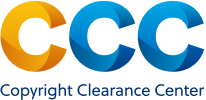NISO’s Communication of Retractions, Removals, and Expressions of Concern (CREC) Draft Recommended Practice Now Open for Public Comment
The Recommended Practice is the product of a working group made up of cross-industry stakeholders formed in spring 2022. The Alfred P. Sloan Foundation generously provided funding for this Working Group as well as for research at the University of Illinois’ Reducing the Inadvertent Spread of Retracted Science (RISRS) project, which has informed Working Group deliberations and decisions.
The draft Recommended Practice, with commenting capability, is available at https://niso.org/standards-committees/crec from October 18 to December 2. NISO also hosted a recent public webinar discussing the work and the public comment period and has made its recording available.



